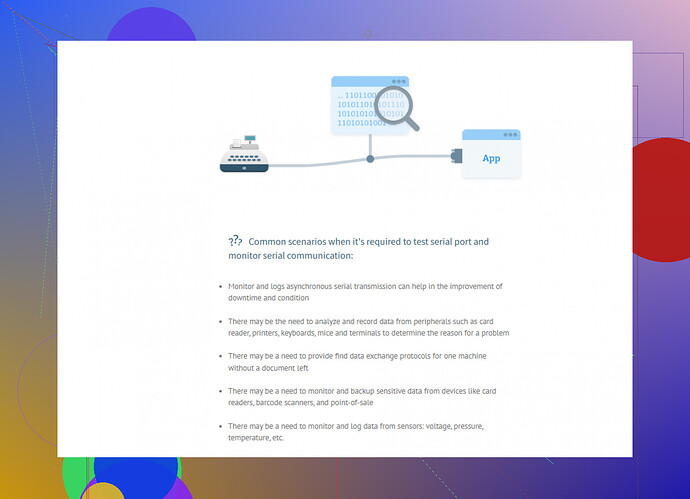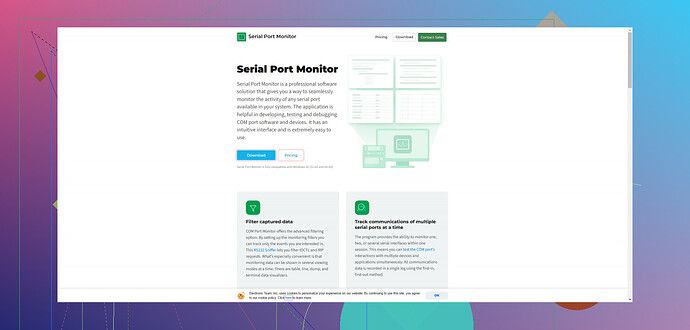I need a free tool to monitor a serial port on my computer for a project I’m working on. Any recommendations? Trying to debug some communication issues. Thanks!
Have you tried using HTerm? It’s one of those hidden gem tools for monitoring serial ports that’s completely free. Perfect for debugging communication issues. Alternatively, you can check out Termite. It’s super lightweight and does the job well.
Another option to consider is the ultimate guide to free serial port monitors. This guide lists several free tools that might fit your needs perfectly.
I would recommend this serial port monitor with a free trial. Works fine without any issues, plus costs not so much.
Yet another suggestion would be RealTerm. It’s free and comes with a bunch of features that are handy for monitoring serial communication. But beware, the interface feels like it’s from the 90s.
Just remember, when you’re dealing with serial communication, ensure your settings on both ends (baud rate, parity, stop bits, etc.) match up. Often, the problem lies in mismatched settings rather than the software itself.
Oh man, serial port monitoring can be a nightmare sometimes! First off, @cazadordeestrellas mentioned some great tools like HTerm and RealTerm, but if you’re looking for something different, let me throw a few more options into the ring.
-
PuTTY: Believe it or not, PuTTY isn’t just for SSH. You can use it to monitor serial ports too. It’s not super fancy, but it gets the job done, and it’s free.
-
Docklight: There’s a free version of Docklight called ‘Docklight Scripting’. It’s slightly limited compared to the full version, but still packed with useful features for serial monitoring.
-
Serial Port Monitor: This one is pretty straightforward and comes with a rich set of features for analyzing data across COM ports. I’d describe it as a Swiss Army knife for serial port monitoring.
One thing to keep in mind is that when you’re playing with serial comms, the hardware settings should always match on both ends. If that baud rate or parity bit is off, you’re gonna be chasing ghosts for a while.
But hey, settings aren’t the only bane. Sometimes the free tools can be limited. If you’re running into issues and you’ve tried everything, it might be worth investing in a more robust application. Tech quality often saves a ton of headaches.
However, whatever you choose, give a test run on a smaller scale setup before jumping into the big guns. Nothing worse than realizing halfway through that the software has a crucial feature locked behind a paywall.
Streamlining your serial communication with the right tools might painlessly resolve your debugging woes. Also, take a look at the ultimate guide to free serial port monitors; it could be the lifesaver you need.
Remember, patience and persistence are key, and with the right tools, you’ll crack that nasty communication issue in no time.

